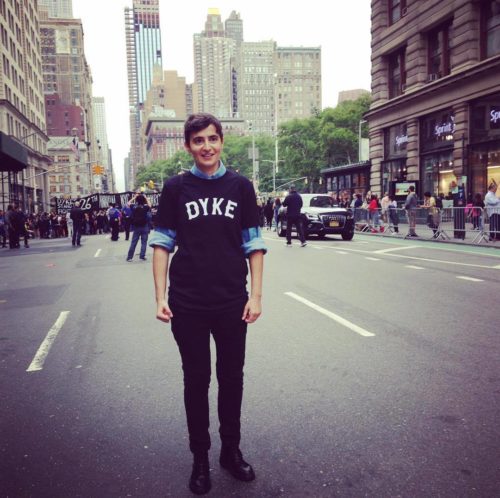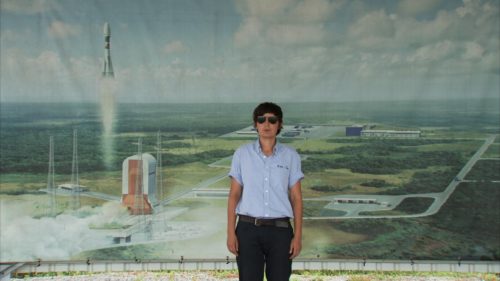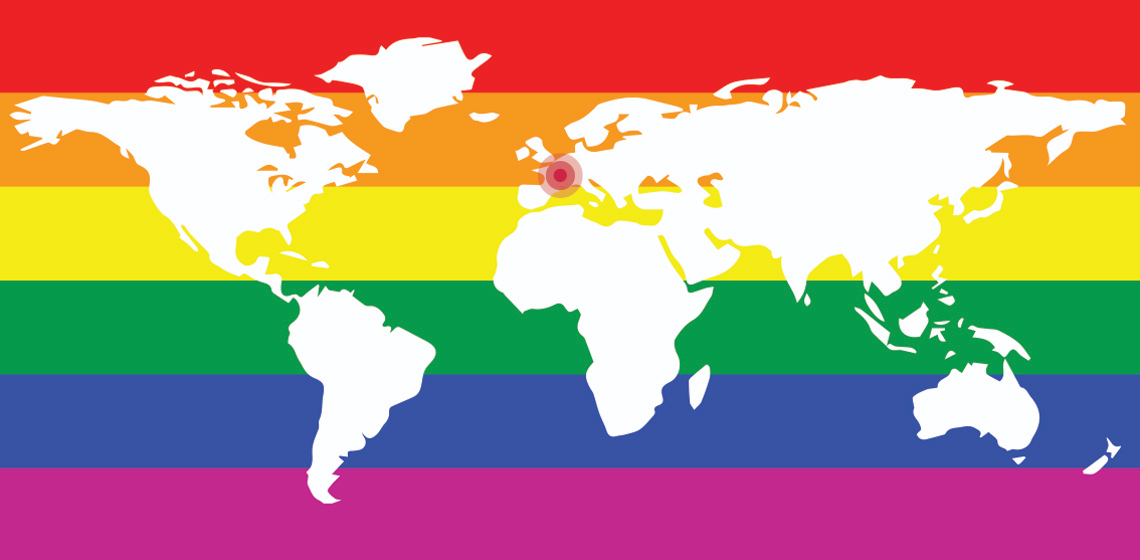This time I am happy to introduce to you a “trendy lesbian” who is a rocket scientist, a filmmaker, and an activist, and who is OK with being called a “lesbian” but so much “trendy.” Warm welcome to Silvia who will tell us about her story and Paris.
Can you introduce yourself please?
My name is Silvia Casalino, I was born in Italy. After my university degree, I moved to France and now, having lived and worked here for almost 20 years, I consider Paris as my hometown.
I'm a rocket scientist and an activist. Growing up in a 100% straight world, my main passion was and still is to find out what lesbians are doing, in culture, political struggles, community organizing, sport, storytelling, models of leaving together, alternative economies, etc...
In 2016 with other outstanding lesbian* activists, we created the first European Lesbian* Conference (EL*C), which took place in October 2017, in Vienna. Five hundred lesbian politicians, artists, journalists, academics gathered from all over Europe and Central Asia for this amazing event. Because of the huge success and the need expressed by the participants, we are now working to organize the second one, in Kyiv, Ukraine, in April 2019.

Woo-hoo! We’ll be there for sure. Now let us talk a bit about France. How is it to live there as an LGBTQ+ person?
France has made some giant steps in the last 20 years for LGBT rights. When I first arrived, the LGBT scene was very active, as in Italy, but LGBT folks didn't have the same rights as straight people. The recognition of same sex couples, first with a civil union in 1999, then with the full marriage in 2013, made a huge impact on all our lives. Last year, the legal procedure to change the gender identity assigned at birth has been simplified, and the journey for trans persons is less heavy.
But changing the laws is not automatically changing the stigma an entire society put on a minority for hundreds of years. As lesbians, we have to fight homophobia and sexism at the same time. Being at this intersection makes some of us very sensitive to other oppressions, like racism and anti-migrant laws, which are huge problems in France and more generally all over Europe.

Yes, that is totally true. Now tell me a bit about Paris.
Paris is a diverse, multicultural, funny city. But it is also an expensive elite capital. LGBT people meet openly in different, more affordable, neighborhoods. Workplace policies are changing thank to the same sex marriage laws, but the majority of the LGBT is still in the closed at work because they are afraid of discriminations. At school, the kids’ mentality is changing so fast that the structure is somehow unprepared. Some educators are really good, some others struggle to find out how to react in front of LGBT questions.
For lesbian rainbow families there are two main problems: the in vitro insemination which is OK for straight couples but not legal if you are lesbian, and the adoption, which, on the paper, should be totally equal but in reality is still much more complicated if you are a lesbian.
Now let’s move to social life in the city.
In Paris, lesbian and queer social life and culture is - I will say as usual - much more hidden than mainstream gay social life. But in my opinion - I may not be totally objective on this point - it is also much more interesting. There are some really nice parties, funny bars, and lesbians organize themselves around social media, so being "virtually" connected is very important for our communities.

Sounds cool indeed. Finally, the usual coming-out question. Can you share a funny, memorable, or inspirational stories of yours with us?
My official, public coming out was an outing, and it always makes me smile when I think about it. I have made a documentary few years ago called No Gravity about women astronauts, which raised the question of women in space technology but not directly of lesbians. The film was invited at the Pink Screens LGBT festival in Brussels. On the internet catalogue, the organizers presented me as a "trendy lesbian" ("lesbienne branché" in French) because I was at the same time a filmmaker and a space engineer. It was the first time I had my name beside the word “lesbian.” And I was shocked. So, I called my producer (also a lesbian, by the way) and I told her I was not happy and she was very professional and comprehensive, and we talked to understand how to find a solution. Long story short, in the end she said to me: "So, what do you want me to to?" At that point I realized this very serious discussion about how to hide my identity sounded so unreal that I laughed and told her to just ask them to erase the "trendy" and leave the lesbian there.

